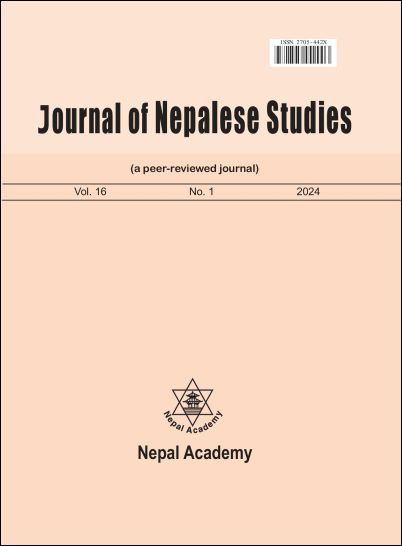Identity politics in light of celebrating sakela Festival among the Rai-Kirats in Kathmandu valley
DOI:
https://doi.org/10.3126/jns.v16i1.71795Keywords:
Collective Identity, Festival, Identity politics, Kirat-nation, SakelaAbstract
The Sakela festival is celebrated twice a year in the Kathmandu Valley by the Rai- Kirant indigenous peoples, during late spring and early winter seasons. As the organizer is the Kirat Rai Yayokkha, the representative organization of the Rai-Kirat adivasis in Nepal, the festival is a spectacular collective action and movement that speaks about Rai-Kirat’s cultural ritual contexts as well as collective Rai-Kirat identity politics in Nepal. This paper reveals out how the Rai-Kirat adivasis, despite being a multilingual population, construct and demonstrate a sense of solidarity and oneness through the sakela festival celebration and how the Rai-Kirat adivasis resist the State’s domination, particularly the naming of provinces, and claim for the name of the province as ‘Kirat’ based on Rai-Kirat’s territorial history and collective identity. Based on observation of and participation in the sakela festival celebrations at five different locations in Kathmandu Valley over two years, this article argues that sakela festival celebrations in Kathmandu Valley speak about making the Rai-Kirat collective identity. Furthermore, the article demonstrates how the modality of the sakela festival celebration produces the relationships that bind the Rai-Kirat adivasis in collective political solidarity for the Kirat nation.




